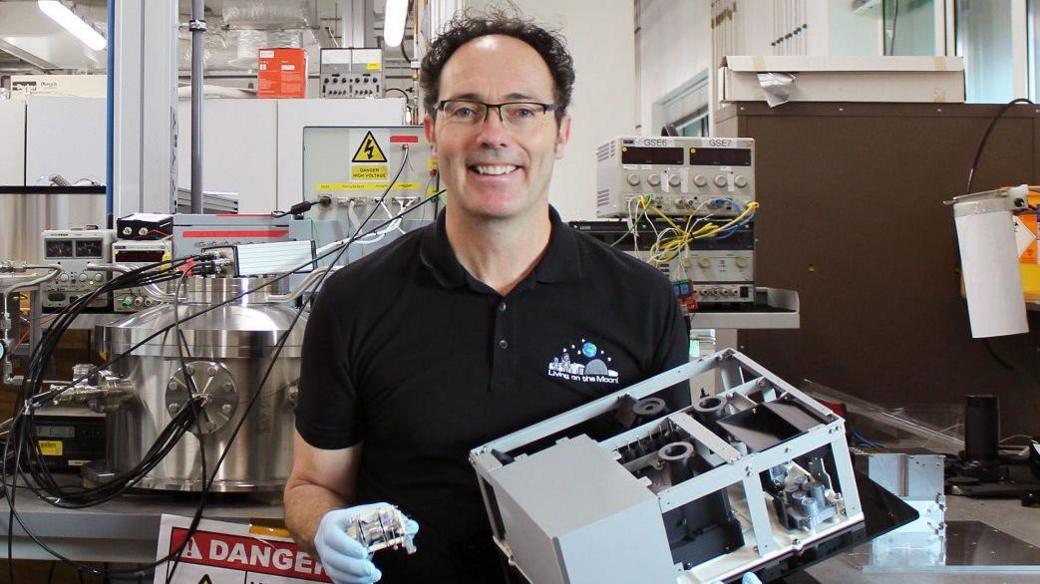A mini lab will fly to the Moon to search for frozen water

The ProSPA mini laboratory will process samples taken from the moon
- Published
A special mini laboratory, designed and built by scientists in the UK, will travel to the Moon to discover more about its lunar surface, the European Space Agency (ESA) has announced.
The miniature lab, which is called ProSPA, will be part of a special mission that will search for frozen water in the Moon's lunar south pole region.
A group of instruments, together known as Prospect, will drill up to at least one metre below the lunar surface, collect samples, and process them in the mini lab.
It's expected to head to the Moon sometime between 2027 and 2028.
If successful, the ESA's Prospect instruments could become the first from Europe to land on the Moon this decade.
More cool space stories
- Published24 July
- Published12 July
- Published6 June
The drill instrument, called ProSEED, is being built by an Italian aerospace company.
As well as ice water, the mini lab will also search for volatiles which are trapped beneath the Moon's surface at extremely cold temperatures as low as a very chilly -150 degrees.
Volatiles are chemical compounds that easily evaporate or vaporise under certain conditions.
It's hoped the mission will help answer questions about how much water exists on the Moon and whether it will be accessible for future human Moon missions.
The ProSEED instrument will drill up to at least one metre below the lunar surface
"After more than a decade of developing the ProSPA concept and instrument, our team is super excited to be hitching a ride to the Moon," said Dr Simeon Barber who leads the ProSPA project at the Open University.
"We look forward to analysing fresh samples which might contain ancient reserves of water and other ices.
"We can't wait to unravel the mysteries of this extreme environment, and discover its potential to support future exploration missions."
The ProSPA mini lab could be heading to space in the next few years
ProSPA will receive the samples from the ProSEED drill through a carousel containing multiple ovens, the scientists have said.
It will seal and heat the lunar soil to extract the cold-trapped volatiles, and will use its own instruments to identify the chemicals in the samples.
"We're delighted that this latest milestone is bringing the instrument one step closer to the Moon," said Chris Howe who is the production and software group leader at RAL Space which has supported the development of the ProSPA mini lab.
"ProSPA will not only build on the legacy of previous projects... but the insights we gain from it will also support future missions advancing our understanding of the lunar surface.
"It's a really exciting project to be part of."
More of the latest
- Published29 August
- Published30 August
- Published29 August
